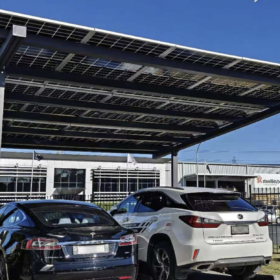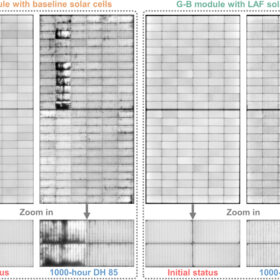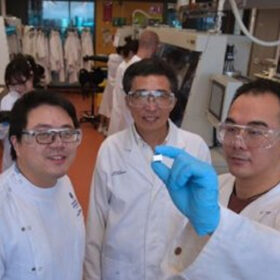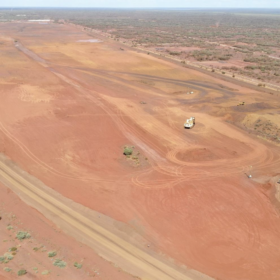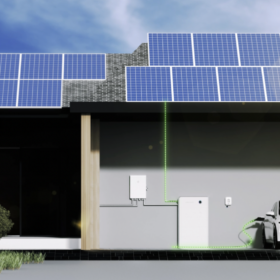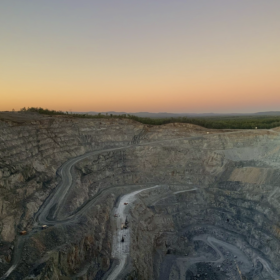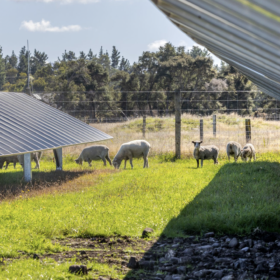GoodWe unveils new solar carport
GoodWe BIPV has identified new applications for its Vela residential solar carport. The modular unit is gaining traction in rural and small commercial settings in Australia as an alternative to ground-mounted and rooftop PV systems.
Australia completes 380 MW of solar, begins grid exports
Construction of the Aldoga Solar Farm on Australia’s central Queensland coast has been completed seven months ahead of schedule. The 380 MW PV plant has already exported its first 850 kW of clean electricity into the main national grid.
EVA-induced degradation has significant impact on power losses in TOPCon solar modules
New research from UNSW shows that EVA-encapsulated TOPCon solar modules under damp-heat testing can suffer significant power losses and fill factor drops. The study describes metallization degradation mechanisms driven by EVA-generated contaminants and demonstrates the effectiveness of metallization adjustments in reducing EVA-induced degradation rates
Engie trial turns Australian solar curtailment into revenue stream
Engie and SA Power Networks have doubled participation in a rooftop solar curtailment trial to 100 households after hitting the initial cap of 50, offering financial rewards to help manage periodic oversupply.
Australian researchers build 2D/3D tin halide perovskite solar cell with 16.65% efficiency
Researchers at the University of Queensland have developed a 2D/3D tin halide perovskite (THP) solar cell with a certified efficiency of 16.65% and peak performance of 17.13%, maintaining stable output under continuous illumination for over 1,500 hours.
Fortescue begins working on 190 MW of solar in Australia
Construction has begun on a 190 MW solar farm at Fortescue’s Cloudbreak mine site in the Pilbara region of Western Australia as the iron ore and green energy giant forges ahead with its decarbonization plans.
Australian entities say V2G tech ready for market
Essential Energy, the Commonwealth Scientific and Industrial Research Organisation (CSIRO), renewable tech company Sigenergy and electric vehicle distributor AUSEV have jointly announced vehicle-to-grid (V2G) technology is market ready in Australia.
Australian state backs 20 GWh pumped hydro project
The Queensland government in Australia is set to invest AUD 50 million ($31.8 million) into a pumped hydro project with an energy storage capacity of up to 20 GWh as it works to develop a new five-year energy roadmap that is to be delivered by the end of 2025.
Unsolicited rooftop solar sales subject to ‘super complaint’ in Australia
Australia’s consumer watchdog is being urged to ban the unsolicited sale of solar products with a national advocacy group saying the “harmful” practice is degrading trust in the solar industry and government schemes and discouraging people from participating in the transition to clean energy.
Demand growing for agrivoltaic projects in New Zealand
New Zealand solar farm developer Lightyears Solar has turned on the Waingawa Solar Farm, a 4.7 MW community agrivoltaic project, using 7,700 solar panels.
